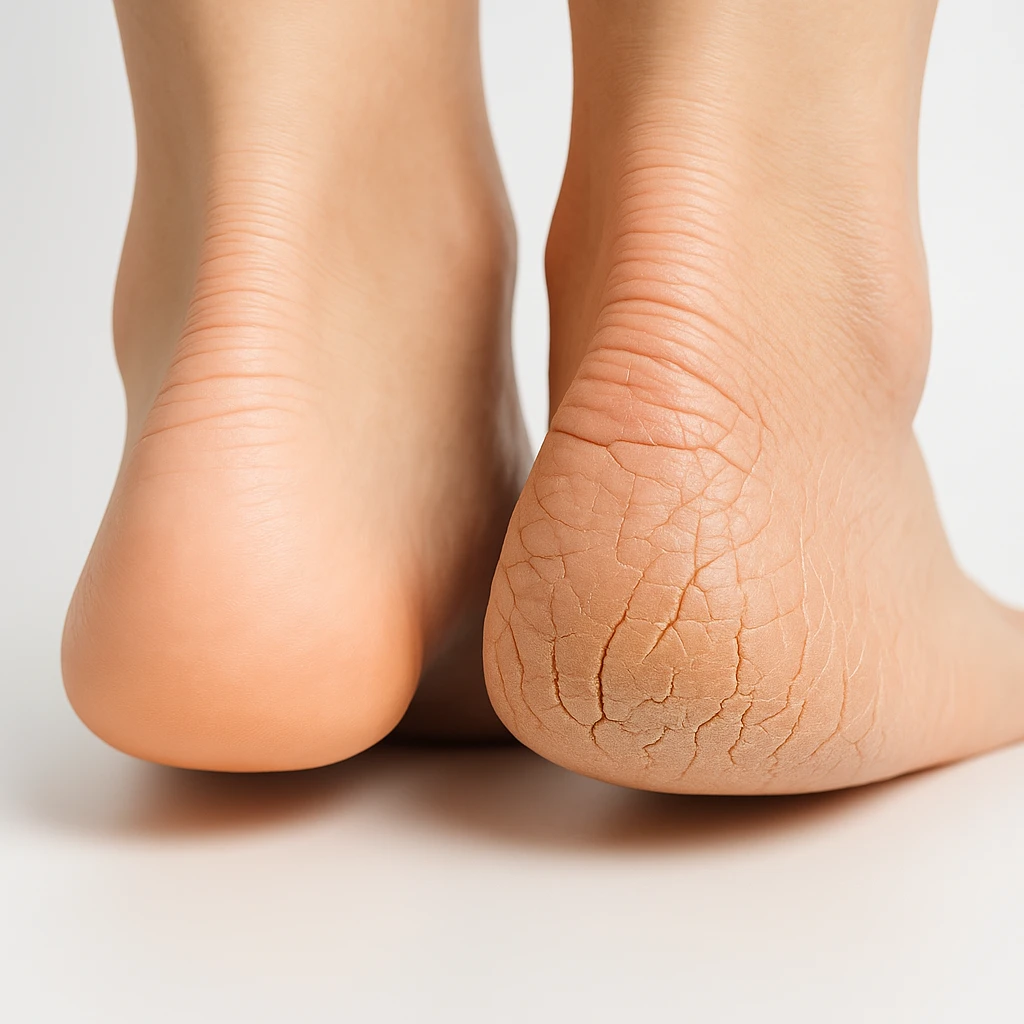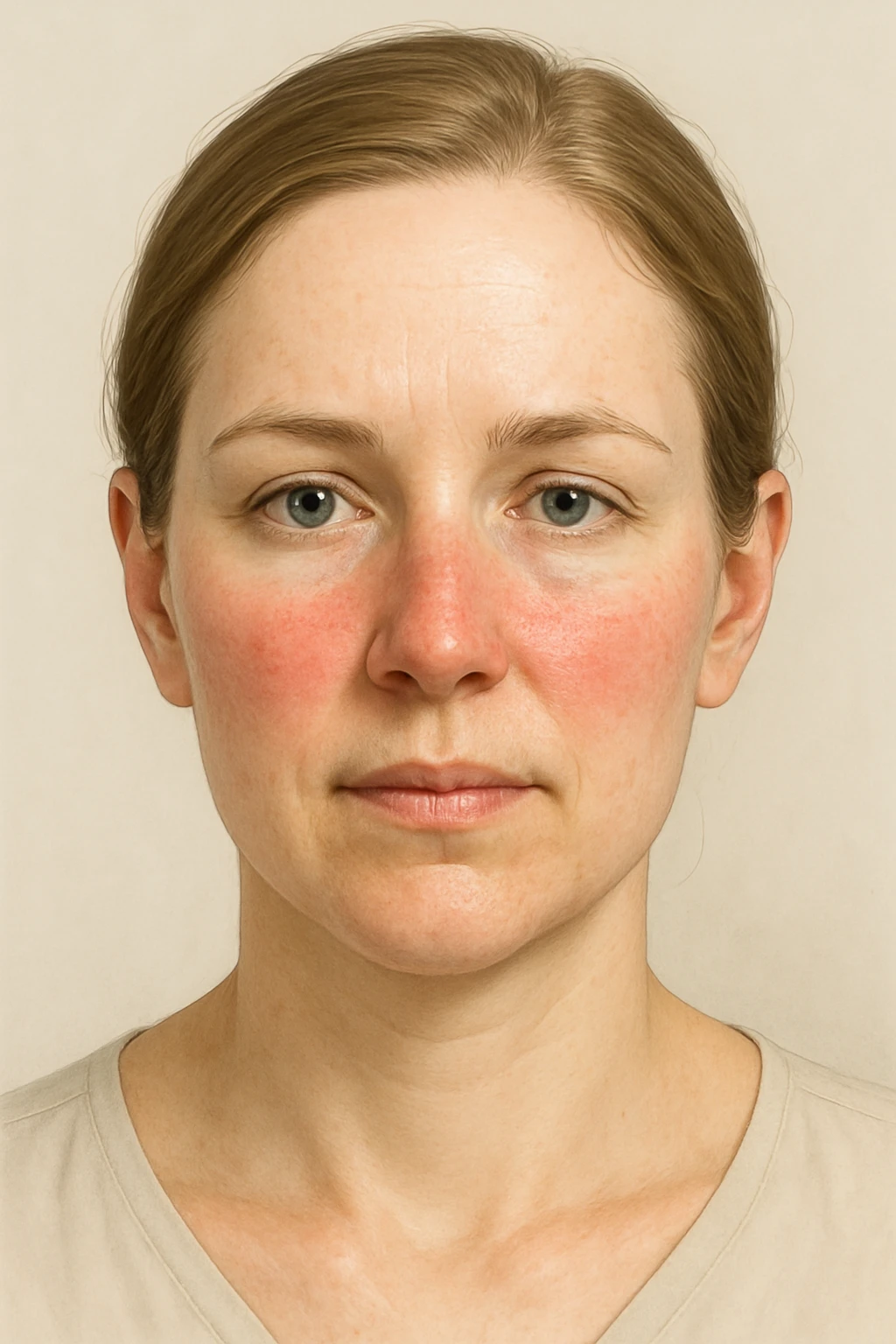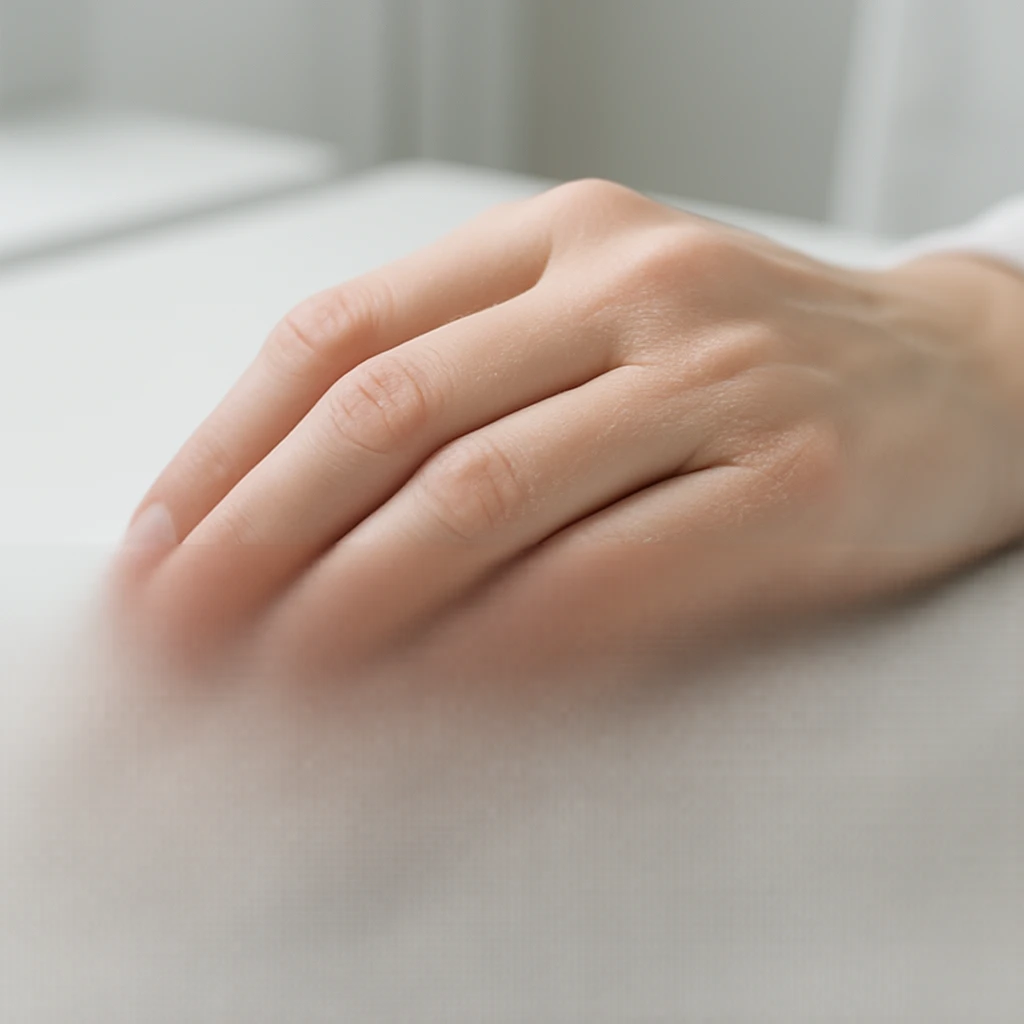Itchy Skin No Rash: Common Causes and Effective Relief
What It Means When Your Skin Itches but Looks Normal
Having itchy skin without a rash can be surprisingly frustrating. You may feel an irresistible urge to scratch even though your skin appears completely normal. This type of itch, called pruritus without a rash, is more common than many people realize. It can stem from simple dryness or, less often, signal a deeper issue that needs medical attention. Understanding when it’s harmless and when it deserves a closer look can help you manage symptoms effectively and with confidence.
pruritus without a rash
Pruritus without a rash refers to itching that occurs on skin that looks otherwise healthy-no bumps, redness, or irritation visible on the surface. In many cases, it develops because the outer layer of the skin loses moisture and becomes overly dry, a condition known as xerosis. Dry skin is particularly common in older adults and in households where indoor air is dry, such as during winter months. Without enough moisture, nerve endings in the skin become more sensitive, triggering the itchy sensation even in the absence of visible damage.
- Xerosis: Loss of skin moisture leading to dryness and sensitivity.
- Older adults: Natural reduction in skin oil production increases itch risk.
- Low humidity: Indoor heating or cold air further dries the skin.
When itching continues for more than six weeks without an identifiable cause, doctors may call it chronic pruritus of unknown origin. This term simply means that the itch persists despite careful examination and testing, which can be frustrating for patients. Even though no clear source is found, this type of itch can significantly affect daily comfort and may still respond to simple, consistent skin care.
How common is it?
Itchy skin without a rash affects people of all ages but tends to become more frequent with age. As we get older, our skin naturally produces less oil, making it more prone to dryness and sensitivity. Low humidity environments and certain lifestyle habits, like long hot showers or frequent washing, can further deplete skin moisture. While this type of itching is usually benign, it can interfere with sleep, concentration, and overall quality of life if ignored. Persistent or unexplained itching should be discussed with a healthcare professional, especially when it disrupts rest or daily routines.
Everyday Causes You Can See and Control
Many cases of itchy skin without a rash start with simple, everyday factors. The outer layer of the skin acts as a barrier, and when it becomes dry or irritated, it loses its ability to protect the nerves underneath. Habits like bathing routines, cleaning choices, and indoor environments often play a key role in triggering or worsening this kind of itch. Fortunately, most of these factors can be managed with small but consistent changes at home.
Dry skin (xerosis)
Dry skin, or xerosis, is the most common and preventable cause of itch without a rash. It occurs when the skin loses moisture from the outer layer, leading to roughness and sensitivity. Older adults are especially prone to this because skin naturally produces less oil over time. Cold weather and indoor heating also strip the skin of moisture, creating a tight, itchy feeling.
- Moisturize daily with fragrance-free emollients, especially after bathing.
- Limit long, hot baths or showers that worsen dryness.
- Keep indoor air moist during winter to reduce skin dehydration.
Household and skincare triggers
Everyday products can unintentionally worsen dryness. Harsh soaps, bubble baths, and some cleaning agents remove natural oils that keep the skin soft. Over-washing or scrubbing too hard also damages the surface layer, making it more sensitive to environmental irritants.
- Use gentle cleansers and mild detergents to protect the skin barrier.
- Choose soft, breathable fabrics to minimize friction.
- Avoid products with alcohol or strong fragrances that irritate the skin.
Environmental factors
Environmental conditions often influence how itchy the skin feels. Low humidity, whether from winter heating or air conditioning, can draw moisture out of the skin. Frequent exposure to hot water, such as long showers or baths, has the same effect. Even water hardness-the amount of minerals in household water-can dry the skin over time.
- Use a humidifier in dry climates or during heating seasons.
- Keep bath and shower water lukewarm to protect natural oils.
- Apply moisturizer immediately after bathing to lock in hydration.
When Itch Comes from Inside the Body
Sometimes, itchy skin without a rash can be a sign that the cause lies beneath the surface. While many cases come from dryness or irritation, ongoing or generalized itching can occasionally reflect changes in internal organs or blood chemistry. Understanding these internal triggers helps explain why doctors sometimes order blood tests or scans even when the skin itself appears clear.
Organ-related causes
Several internal organs influence how the body processes and eliminates waste products that can affect the skin. In kidney disease, especially advanced stages, toxins can build up in the bloodstream, leading to persistent itch without visible rash. Similarly, liver conditions-particularly those that block bile flow, known as cholestatic liver diseases-often produce a characteristic, widespread itch. Hormonal changes related to thyroid disorders can also alter skin texture and moisture, resulting in otherwise unexplained pruritus. These organ-related problems typically cause itching that affects large areas rather than isolated spots.
- Kidney disease: Buildup of waste in the blood can trigger widespread itching.
- Liver disease: Cholestatic conditions cause bile acids to accumulate, often leading to intense itch.
- Thyroid disorders: Hormonal changes may dry or sensitize skin, causing chronic itch.
Serious but uncommon causes
Although rare, some blood and cancer-related conditions can cause itching before other symptoms appear. For instance, Hodgkin lymphoma and certain biliary cancers can trigger generalized itch, even when the skin appears normal. This kind of itching may persist or worsen over time and is usually accompanied by other signs such as fatigue or unintentional weight loss. While these causes are much less common, they highlight why chronic, unexplained itch should not be ignored.
| Condition | Type of Itch | Other Possible Clues |
|---|---|---|
| Hodgkin lymphoma | Generalized, persistent | Fatigue, night sweats, weight loss |
| Biliary cancers | Widespread, intense | Jaundice, abdominal discomfort |
Nerve and brain involvement
In some cases, the nerves themselves are the source of the itching sensation. Conditions that affect nerve function can misfire itch signals even when the skin is healthy. Two examples include brachioradial pruritus, which affects the outer arms, and notalgia paraesthetica, which causes itch between the shoulder blades. These neuropathic forms of pruritus stem from irritation or compression of sensory nerves and require a different treatment approach than skin-based causes.
Myths vs Facts
- Myth: If there’s no rash, the itch can’t be serious.
- Fact: Internal conditions-such as liver, kidney, or thyroid disease-can cause itch without visible skin changes.
- Fact: Persistent, generalized itching lasting several weeks deserves medical evaluation to rule out underlying illness.
How Doctors Investigate Persistent Itch
When itchy skin without a rash lasts for weeks or spreads, doctors take a careful and structured approach to uncover the cause. The goal is to distinguish surface dryness from internal or systemic issues that may need treatment. This process begins with a detailed medical history and physical examination, followed by targeted tests when needed.
What your doctor looks for
During the initial assessment, clinicians ask detailed questions about when the itching began, how long it lasts, and whether it follows a pattern or worsens at specific times. They also review possible triggers such as new medications, detergents, or environmental changes, as well as symptoms like fatigue, weight changes, or night sweats.
- Timeline and pattern of itching (onset, duration, daily variation)
- Potential triggers (medications, soaps, detergents, temperature changes)
- Associated symptoms (fatigue, weight changes, night sweats)
- Physical exam of skin, scalp, mouth, nails, and lymph nodes
Common tests
If no clear external cause is identified, basic laboratory tests help rule out internal contributors. Standard panels often include a complete blood count, liver and kidney function tests, thyroid function tests, and fasting blood glucose. These screenings can reveal issues such as anemia, thyroid imbalance, or buildup of waste products in the blood that sometimes cause itching. Abnormal results guide further diagnostic steps.
| Test | Purpose |
|---|---|
| Complete blood count (CBC) | Detects anemia or blood abnormalities |
| Liver function tests | Assesses bile flow and potential liver disease |
| Renal function tests | Checks for waste buildup in kidney disease |
| Thyroid function tests | Evaluates hormonal imbalance affecting skin |
| Fasting blood glucose | Identifies blood sugar issues linked to itch |
Referral and imaging
Further evaluation depends on test results and the presence of any red flags. If the cause remains unclear or findings suggest deeper organ involvement, doctors may refer patients to dermatologists, endocrinologists, or other specialists. Imaging such as ultrasound or CT scans is reserved for cases where laboratory findings or symptoms point toward an internal condition. These steps ensure any underlying illness is identified early and managed properly.
When to See a Doctor
- Itch lasting more than six weeks without improvement
- Accompanying fatigue, weight loss, or night sweats
- Yellowing of the skin or eyes (jaundice)
- Generalized itch affecting most of the body
Relief and Prevention Strategies for Itchy Skin Without a Rash
Persistent itchy skin without a rash can interfere with daily life, affecting sleep, focus, and overall comfort. Managing it effectively requires a mix of good skin care, targeted treatments, and preventive habits that keep the skin calm and resilient. While many cases improve with home measures, ongoing or severe itching may need professional care to identify and address underlying causes.
Home and topical care
The first step in relief is to restore the skin’s protective barrier and reduce irritation. Regularly applying fragrance-free emollients or moisturizers helps trap moisture and ease dryness, especially after bathing. Short, lukewarm showers and gentle cleansers minimize further irritation and help maintain the skin’s natural balance.
- Apply fragrance-free emollients or moisturizers daily, especially after bathing.
- Use gentle, non-soap cleansers and avoid very hot water.
- Try menthol-based or cooling lotions for quick, soothing comfort.
- Avoid scratching to prevent infection and scarring.
Medications and specialist options
When itching persists despite consistent self-care, doctors may recommend medications to help manage symptoms. Non-sedating antihistamines can reduce itch when triggered by histamine release, though they are less effective in long-term or non-allergic cases. For chronic or unexplained itch, treatments such as gabapentinoids, certain antidepressants, or light-based therapies (phototherapy) may be used under medical supervision to relieve discomfort and modulate nerve responses.
| Treatment Type | Purpose |
|---|---|
| Non-sedating antihistamines | Helps control histamine-related itching |
| Gabapentinoids / Antidepressants | Modulates nerve signals involved in chronic itch |
| Phototherapy | Reduces inflammation and nerve hypersensitivity through controlled light exposure |
Preventing recurrence
Preventing future flare-ups means maintaining healthy skin and addressing contributing factors. Keeping the skin hydrated, avoiding harsh products, and maintaining a balanced indoor humidity level can all help. Managing stress and ensuring regular rest also support skin recovery, since emotional strain can intensify itch perception. Long-term consistency in skincare routines not only prevents dryness but also reduces the likelihood of scratching-related complications. For those living with chronic itchy skin without a rash, regular check-ins with healthcare providers can help fine-tune treatments and maintain overall comfort.
Frequently Asked Questions About Itchy Skin Without a Rash
- Why does my skin itch even though it looks normal?
- Itching without a visible rash often results from dry skin, nerve irritation, or internal health conditions such as thyroid or kidney issues. The skin’s nerves can become overactive even when no rash is present.
- When should I worry about persistent itching?
- If itching lasts more than six weeks, spreads across the body, or occurs with fatigue, weight loss, or jaundice, see a doctor for evaluation.
- Can stress or anxiety make itching worse?
- Yes. Stress can heighten nerve sensitivity and increase the perception of itch. Relaxation techniques and consistent sleep can help calm flare-ups.
- Are allergies always to blame for itching without a rash?
- Not necessarily. While allergies can cause itching, many cases of itch without rash are due to dryness, medication effects, or internal imbalances instead of allergic reactions.
- What home remedies can soothe itchy skin?
- Using fragrance-free moisturizers, keeping baths lukewarm, and applying cooling lotions like those with menthol can bring temporary relief and restore comfort.
- Can itchy skin without a rash signal an internal disease?
- Yes. Liver, kidney, thyroid, or blood disorders may cause widespread itching before other symptoms appear, so medical testing may be necessary.
- How do doctors test for unexplained itching?
- Doctors review your medical history, perform a skin and physical exam, and may order blood tests to check liver, kidney, thyroid, and glucose levels.
- Is chronic itching harmful if I keep scratching?
- Constant scratching can damage the skin, leading to infection or scarring. Moisturizing and using gentle care help protect the skin barrier.
- Does aging increase the risk of itchy skin without a rash?
- Yes. As people age, skin produces less oil and retains less moisture, making it drier and more prone to itching without visible irritation.
- Can itchy skin without a rash be prevented?
- Regular moisturizing, avoiding harsh soaps, and maintaining healthy humidity levels at home can prevent dryness and reduce the risk of recurrent itching.













